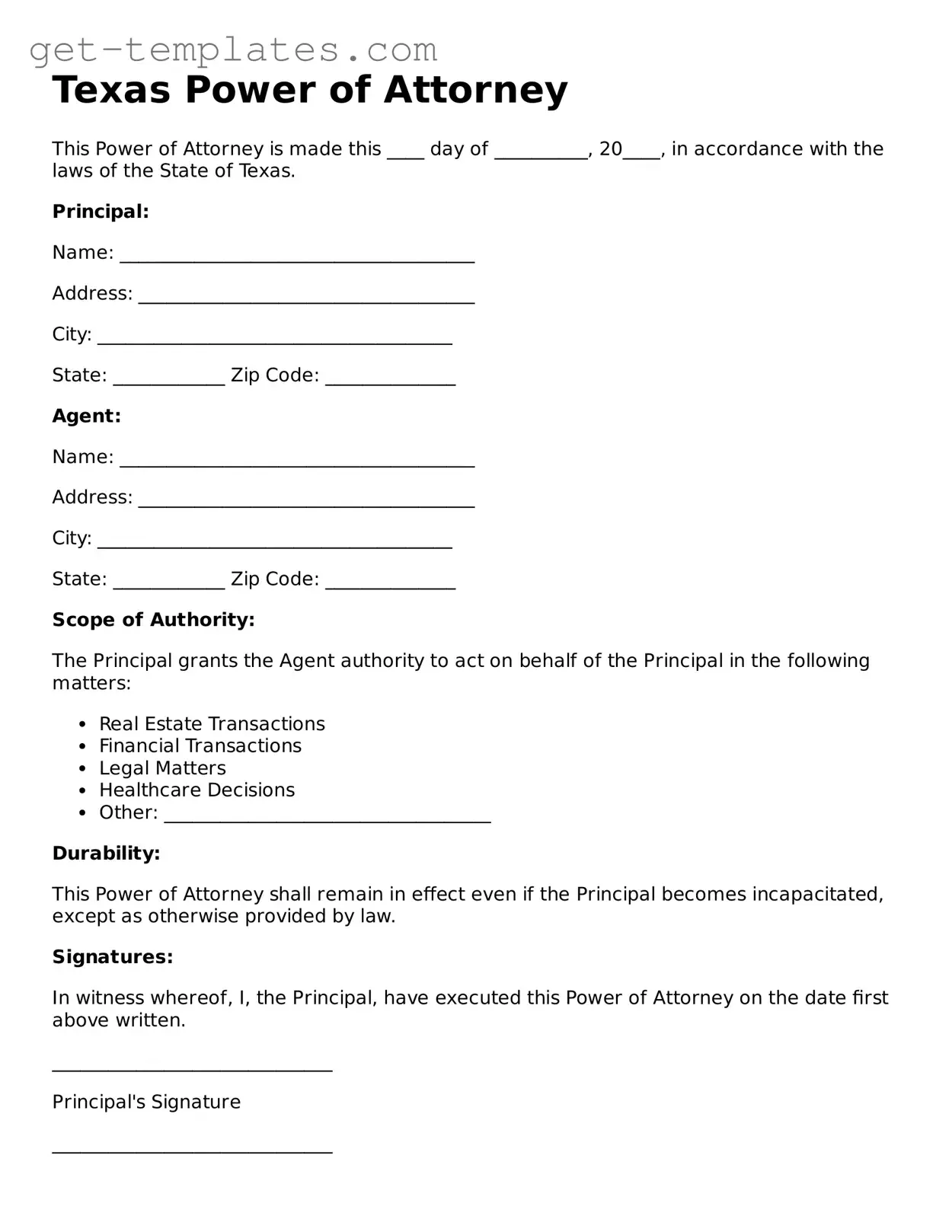Attorney-Approved Power of Attorney Document for Texas
The Texas Power of Attorney form is a legal document that allows one person to grant another the authority to make decisions on their behalf. This form can cover various aspects, including financial matters and healthcare decisions. Understanding its provisions is essential for ensuring that your wishes are honored when you are unable to make decisions for yourself.
Get Document Online

Attorney-Approved Power of Attorney Document for Texas
Get Document Online
You’re halfway through — finish the form
Finish Power of Attorney online — edit, save, download made easy.
Get Document Online
or
⇓ PDF Form
